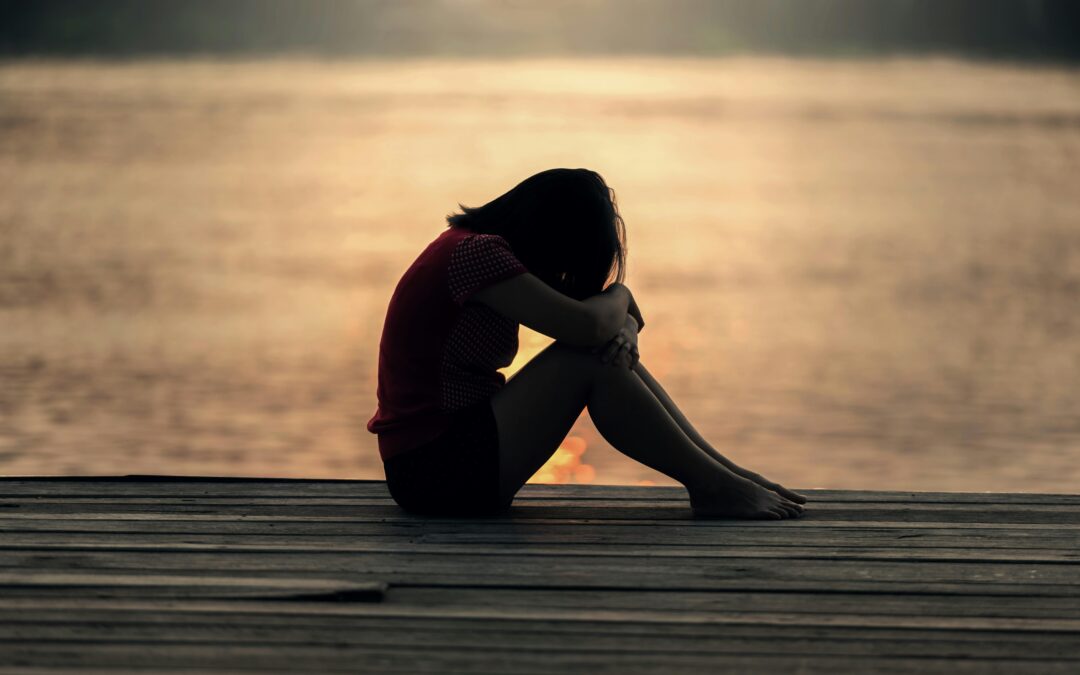By Melissa Howard
I was still a child when I realized my moods were different from other kids my age. This awareness came even before the traumatic accident I experienced prior to my eleventh birthday, the medical negligence, and the two additional—yet preventable—surgeries that followed. From that day forward, I cycled through waves of depression throughout adolescence and into adulthood.
I was first diagnosed with major depressive disorder as a young teen. For years, that was the label attached to me—until, at nineteen, I finally received the correct diagnosis: bipolar disorder (BD).
Throughout my youth, depressive episodes made functioning nearly impossible. Some days, getting out of bed to attend school, eat, or shower felt insurmountable. Then, almost abruptly, those dark periods would lift, and I would return to what I believed was my “normal.” In contrast to depression, my “normal” was energetic, productive, and social. I excelled in school, caught up on missed work, and took pride in being reliable. But with that energy came irritability, impatience, impulsivity, and bursts of anger—traits dismissed as part of my personality rather than early signs of a mood disorder. This cycle followed me through high school until my bipolar diagnosis finally explained it.
My most acute depressive episode came when I was eighteen. It struck without warning, following a year of undiagnosed hypomania. One summer morning, I simply couldn’t get out of bed for work. I called in sick, assuming a day of rest would help. It didn’t. The next day was the same. And the next.
I stopped answering calls and seeing friends. Eventually, I pushed everyone away. I didn’t even feel sad anymore—what I felt was worse: nothing. A hollow, suffocating numbness.
Every sound became unbearable—the ring of the phone, music, voices outside my door. It all grated on me like nails on a chalkboard. I ripped the telephone cord from the wall. My bedroom became my fortress. I recoiled from touch; even a loving hug sparked rage in me. This depression was unlike anything I had experienced before—it felt alive, like a heavy, wet blanket smothering the very life out of me.
People noticed. Concern grew. My appearance and surroundings deteriorated—I had always taken pride in my tidy space, but now everything was disordered and chaotic. My eating habits swung from near-starvation to constant bingeing as I tried, unsuccessfully, to distract myself from my own emptiness.
Eventually, suicidal thoughts evolved into a plan—and then into an attempt. When I survived, I didn’t feel relief. I felt failure. I couldn’t even die “properly.” That shame pushed me further inward. Soon after, hallucinations began. I withdrew from university, knowing I couldn’t cope with the additional pressure.
Nights became the worst. As I lay in bed, desperate for sleep, I’d see and hear him: an old man with demon-like features whispering, “Do it.” He never said what “it” was, but I knew. I covered my ears, squeezed my eyes shut, but he lived inside my mind. I misused over-the-counter sleep aids, anything to silence him. Nothing worked.
When I finally received competent help my psychiatrist explained I had experienced depressive psychosis—rare in depression, more commonly seen in mania, but devastating nonetheless.
Society often frames depression as sadness. But for me, depression was numbness so complete it became agony. It consumed my body as well as my mind—constant aches, migraines, hypersensitivity to touch and temperature. My internal thermostat could not regulate—often wearing heavy track suits in the summer and t-shirts throughout the winter.
That episode happened twenty-eight years ago. I’ve missed milestones, opportunities and pieces of my youth because of it. I’ve endured other depressive periods since, but I’ve never returned to that depth of severity. I’ll never say I’m glad it happened—but I am grateful that it led to a proper diagnosis. Finally, I had a name for my pain and could learn to manage and live with it instead of fighting against it. With treatment and self-awareness, I’ve learned to manage my illness and protect my stability.
Looking back, that episode was terrifying. It nearly killed me. But it also taught me a hard truth: my mind, even when it betrayed me, had the determination to come back. That’s a resilience only those who live with BD truly understand.
While that period of my life was harrowing, it revealed a strength I didn’t know I possessed. Living with bipolar disorder isn’t easy, but stability is possible, joy can return, and healing is always worth fighting for. If you are in the depths of your own struggle, hold on—there is a way through, and you are far stronger than you may believe.


